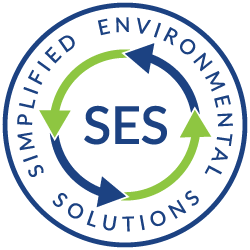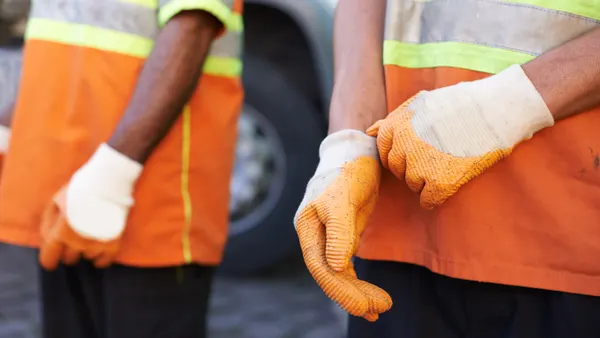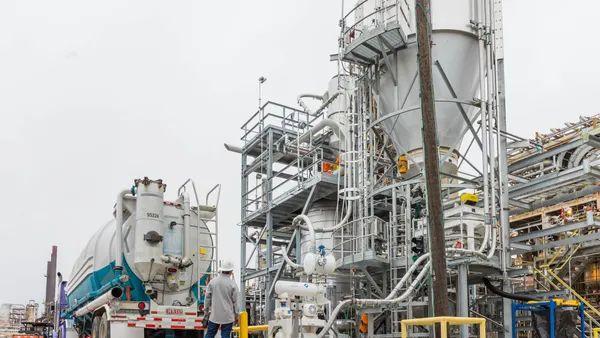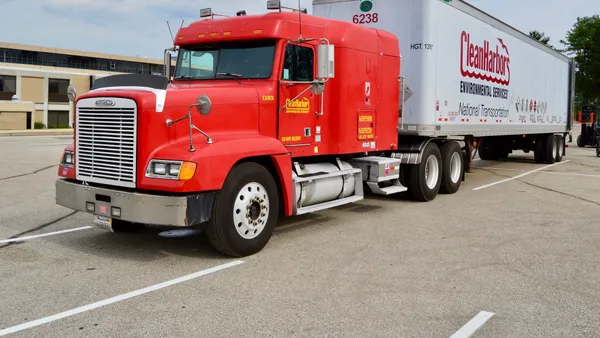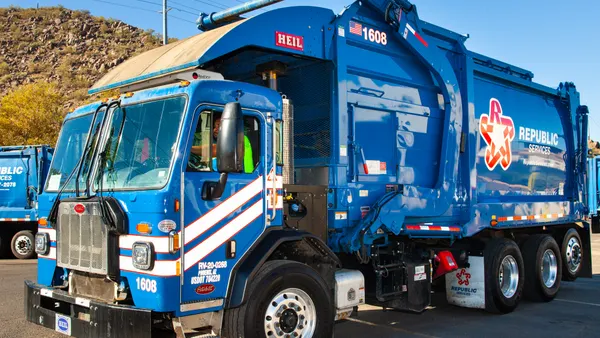Dive Brief:
- The amount of food waste recycled in 2012 was under 5%, according to the EPA, but food waste recycling is expected to increase as more U.S. cities begin to focus on organics recycling.
- According to Bob Schaffer, a soil scientist, 35% of food is tossed into the trash, while farmers are in need of the nutrient-rich compost to fertilize land.
- Some recycling experts have cited the benefits of the practice of creating carbon-rich biochar. When mixed into soil, burned waste can increase plant growth in degraded soil.
Dive Insight:
Approximately 200 cities currently recycle food waste. San Francisco, CA recently implemented a curbside collection program for food waste and yard trimmings from both restaurants and households. A hauler partnered with with a waste facility to convert food waste into fuel, and the state is looking to compost in order to fight drought, since organics have use as “natural sponges.”
A little further north, Seattle, WA passed legislation that requires all food waste to be composted (the law takes effect January 1, 2015). The city is looking to increase its recycling rate from the current 56.2% to 70% by 2022. The City Council also passed an ordinance that will fine residents who place “too much” food waste into collection bins.
Portland, OR implemented its organics composting program in 2011, and the city has cited a recycling rate that grew from 50% to 70% since the program started.
Over on the other side of the country, New York City started a pilot composting project in June. 100,000 households participate in the program, which has fostered a reduction in the volume of waste in those particular areas.






